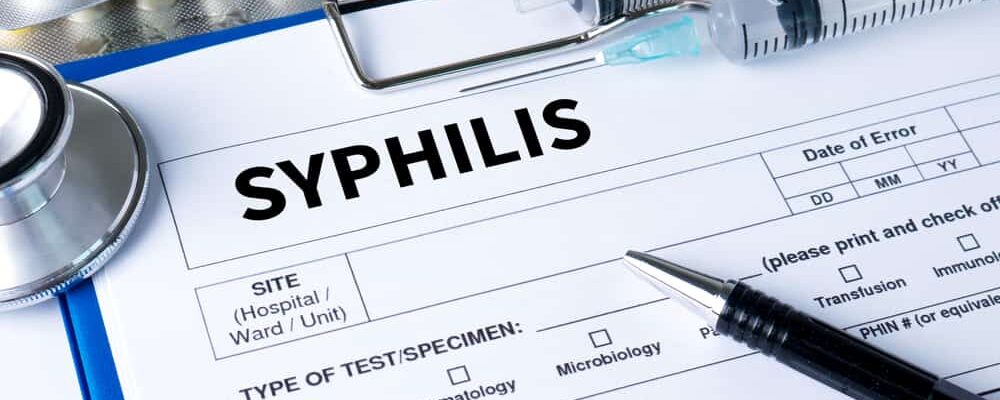Sexually transmitted diseases (STDs) are diseases that are spread from one person to another through sexual intercourse.
Signs of a sexually transmitted diseases
Symptoms of sexually transmitted disease will vary from stage to stage. Most people do not know they have sexually transmitted diseases until the body has obvious symptoms or when the doctor diagnoses the disease.
Signs of an STI may include:
- Pimples on the genitals, anus or mouth area
- Pain when urinating
- Abnormal vaginal discharge
- Vaginal itching, bleeding, bad odor, or abnormal vaginal discharge
- Pain during sex
- Pain or swelling of lymph nodes in the groin or surrounding areas
- Lower abdominal pain
- A rash on the hands, feet, or over the entire body.
The duration of symptoms of STDs is long or short, and varies from person to person. This depends on the type of bacteria causing the infection and the location of each patient. On the other hand, the above symptoms could be signs of another disease. You need to be properly diagnosed by your doctor to choose the right treatment.
Causes of sexually transmitted diseases
The most common sexually transmitted disease today include: gonorrhea, chlamydia, genital herpes, HIV, syphilis, genital warts, trichomoniasis, hepatitis B.
You get sick because your body is infected with bacteria, viruses or parasites that cause disease. Germs are spread when you have unprotected sex.
6 subjects at high risk of contracting sexually transmitted diseases

Anyone who has sex with another person is at risk of contracting sexually transmitted diseases. However, the following 6 subjects are more likely to be infected.
1. People who have unprotected sex are susceptible to sexually transmitted disease
Safe sex is about using a method that protects you from unwanted pregnancy or sexually transmitted diseases. Accordingly, using condoms is considered an effective way to protect yourself from those risks.
Condoms act as a physical barrier. It prevents direct contact with bodily fluids between two people having sex. From there, it reduces the risk of sexually transmitted diseases.
People who do not use condoms when having sex with direct contact with the other’s bodily secretions. This increases the risk of contracting sexually transmitted disease.
2. People who regularly have unprotected oral sex
Oral sex increases your chance of getting herpes of the lips (genital herpes), a common sexually transmitted disease. To reduce this risk, use a dental diaphragm during each intercourse.
Dental diaphragms are square pieces made of rubber or silicone. This device prevents direct contact with secretions from the opponent’s private area. As a result, this item helps you increase your resistance to sexually transmitted disease.
3. Having sex with many people increases the risk of sexually transmitted diseases
The more people you have sex with, the higher your risk of contracting a sexually transmitted disease. This is often the case when a person has multiple sexual partners at the same time or who is not in a monogamous relationship.
4. Have a history of sexually transmitted diseases
If you’ve had a sexually transmitted disease, you’ll also be vulnerable to another sexually transmitted disease. For example, if you’ve had syphilis, gonorrhea, lip herpes, or chlamydia, you’re also more likely to get HIV if you have sex with someone who tests positive for the disease.
5. People who inject drugs
People who inject drugs or share needles with others are susceptible to the transmission of many dangerous sexually transmitted diseases, including HIV. This object is also highly contagious to people who have sex with them.
6. Young people who are in their teens
Most young people in their teens have not had any sexual experience. This means they have little or no resistance to STIs. This factor makes minors vulnerable to sexually transmitted disease if they have sex without a condom.
How to prevent sexually transmitted disease?

To prevent sexually transmitted diseases, you must always use condom right way when having sex. This method has the ability to protect you up to 98% from the risk of sexually transmitted diseases and unwanted pregnancy.
Other safe sex practices that can also help prevent illness include:
- Have a faithful monogamous relationship
- Do not have sex when you suspect that you or your partner has a sexually transmitted disease.
- Avoid sexual behaviors that increase the risk of infection such as bleeding, tearing the skin, etc.
- Vaccinate against hepatitis B and HPV.
STDs are usually treated with antibiotics or parasites. However, there are 4 diseases that cannot be cured: hepatitis B, herpes, HIV, and HPV. Medicines can only help patients control symptoms. To protect yourself, you need to strictly follow the principles of safe sex.







